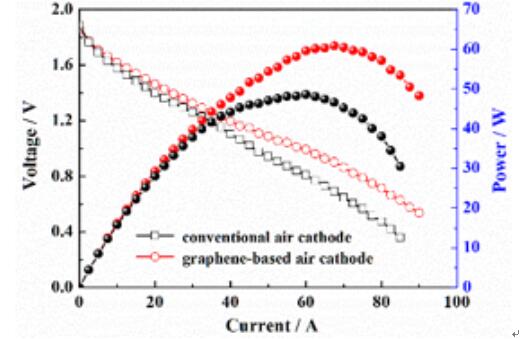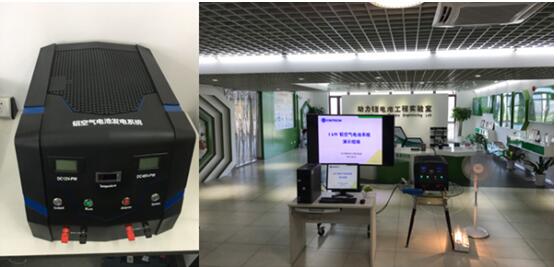Metal-air batteries as an kind of energy conversion have captivated particular attentions because of their high energy density, low fabrication cost, environmental friendliness, nontoxicity, long expiration date, long discharge time, high recyclability and wide temperature tolerance. They have broad applications in electrifed transportation (such as plug-in hybrid electric vehicles and electric vehicles), energy storage (for integrating renewable energy in the so-called smart/intelligent grids) as well as emergency power supply. Like other battery technologies, metal–air battery systems also suffer from series of scientifc and technical problems. The main problems are (1) sluggish kinetics of the cathode, (2) low utilization efficiency of the anode, such as severe passivation from accumulation of metal oxides, hydroxides or other species on the anode surface and self-discharge and corrosion, (3) inferior air cathode structure causing high overpotentials and polarization resistance, (4) system heat out of control causing failure of long-term running, resulting in both limited practical energy density and wide application.
The research team from the Key Laboratory of Graphene Technologies and Applications of Zhejiang Province and Advanced Li-ion Battery Engineering Lab frst developed a kilowattscale aluminum-air battery with high efficient graphene-based catalyst, improved air cathode structure with graphene additive and self-developed Al alloy anode with excellent comprehensive electrochemical properties. The industrial design and system integration are optimized to overcome the problem of thermal runaway. This group has published approx. 20 research papers and applied for more than 20 patents associated with Al-air batteries. The research team demonstrated the kilowatt-scale graphene-based aluminum-air battery system after the 300 W magnesium-air battery system in 2015. This battery system has the high energy density of, the capacity of 20 kWh and the output power of 1000 W. It can supply powers for a TV set, a desktop PC, an electric fan and ten 60-watt bulbs simultaneously and continuously for at least 20 hours. The research team also setup the laboratory scale production line with a capacity of 3000 systems year. The 5 KW-scale aluminum-air battery system is under developing at present.

The output power of single cells

The demonstration of 1 kW Aluminum-air battery system

